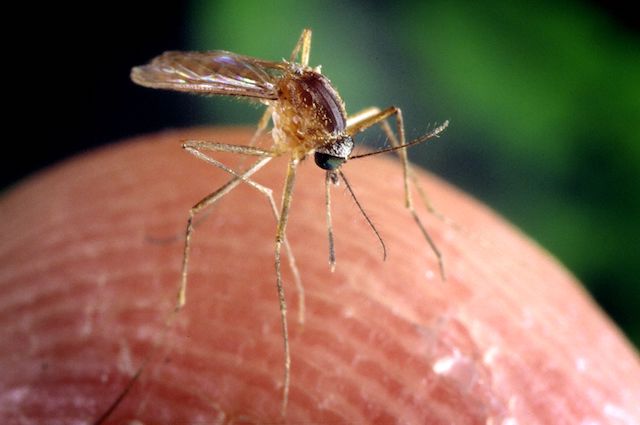
Have you ever found yourself doing strange things on autopilot or acting out in anger, only to look back in hindsight and be baffled as to what motivated you?
In our conscious minds, we can’t always make sense of our own behavior. We might blame others or the situation. We might describe the experience as having not been ourselves. But as Confucius and Buckaroo Banzai told us, “No matter where you go, there you are.”
Bouts of temporary insanity happen to us all. I can recall several times in recent memory when I caught myself behaving as if I were back in time, specifically a time when I was struggling to make ends meet. I could have been trying a lot harder. I was younger then, and the floundering of my 20s had long echoes. I’d just come out of a relationship in which I’d been pulling most of the weight. I let the pendulum swing back too hard and allowed myself to get complacent and slothful. I made bad decisions and lived with their consequences. I spent a lot of time appealing to the humanity of loan officers and utility workers. It was not my proudest phase, but as I like to tell people, “It was educational.”
With sufficient misfortune invited and subsequent effects endured, I was motivated to change. I meditated on the cicada’s long larval stage underground and its climb to the surface to earn wings and a voice. I got mentally clear, sloughed off dead weight, and adopted the habit of rededicating myself daily to a better way of life.
I was rewarded not only with better work, but with a situation that is heaven when I fully feel and nurture it. I have a beautiful family, a safe home, and increasing opportunities to flourish. I am free to work for the greater good with the gifts of my incarnation and help others to do the same when I am able. Happiness turned out to be a lot closer than I thought, becoming a way of life rather than an ephemeral game show prize.
Hometown boy makes good, right?
But a funny thing happened on the way to nirvana. Some part of me attached to the drama of being broke and hung on like a tick. I still get a little spike in blood pressure when I go to the mailbox to get the bills, and mild flight-or-flight when the rent is due.
This is ridiculous. My wife and I have both endured measures of poverty and unpleasant relationships but we have worked together to build a stable life with upward mobility for our family. Our needs are met and our wants are being worked toward. Gradually, my “fun-sized” panic attacks have become shorter and less frequent.
When I learned to catch the panic coming on, I began the process of curing myself of this wasteful disease. With focus I can slow my mind enough to stop it in its tracks and dissect it; it’s easy to see how its game works.
Over there’s the Greek chorus assailing me for not being a provider and the shame that brings. Overhead is the cheap neon sign reminding me I’ve fallen short of my parents’ expectations. Tentacles of septic shame beat out a rhythm that says I’m not the father my daughter deserves. Scuttling around the perimeter is the memory of every mistake I’ve made as a husband. Whispering in the corners is the specter of not doing more good for my family and the world at large.
Unfrozen, these homemade demons buzz around my mind like angry hornets defending their nest. After the panic fades, I understand that these hornets begin as mosquitoes, stealing energy rather than attacking the fidelity of perception. How does it all start?
I’m familiar with guilt, having been raised in a well-meaning religious family in flyover country. I don’t mean the remorse we feel after doing harm or the shame that develops as we try to fit into the shapes we’re told are correct. I’ve felt for some time now that there’s a different kind of guilt, one that we all feel but don’t always know how to talk about. We each shame ourselves harder than anyone else could, but because of the way our minds work, it happens almost invisibly.
One day out driving, the word “micro-guilt” popped into my head. “There it is,” I thought.
Micro-guilt is the voice of social conditioning, but coming to us from inside our minds. It’s like that old story in which the babysitter calls the cops and finds out the killer is in the house. In each of our minds rattle the echoes of a thousand nagging background thoughts from childhood and societal pressures that we have all allowed to become institutions. We believe them to be true, so when they come from inside, we feel compelled to trust them. We are the faithful and shame is the doctrine. Those condemnations once seemed true to somebody, but they may not be true to you in your unique experience.
Micro-guilt is like the eggs of the larger parasite we call shame. To indulge in it is to beat ourselves up for infinitesimal “transgressions” or push ourselves to act on impulses that we have magnified in the funhouse of perception.
Think of each instance of micro-guilt as a single buzzing mosquito in an otherwise serene room. It’s tiny, but enough of a distraction to throw off concentration. It leads to a spiral effect as it activates tangents and these rapidly cluster up into storm clouds. One drop of ink will spoil the drink.
The silver lining of this idea is that a cloud of mental pests is surmountable one bug at a time. It’s easy to feel overwhelmed if we get hooked by all the distractions and distortions at once. Rather than being outnumbered, we can take it one moment, one thought, at a time. We are thus able to rid ourselves of the “shame eggs” before they hatch.
In a state of contemplation we are faced not with a barrage of pressures, but with a choice of which obstacle to confront in the moment. With concentration and patient effort we can rid ourselves of these phantoms one at a time until the temple is clean.
Imagine the serenity of a cool evening, undisturbed and able to stretch your mind to fit the dimensions of imagination rather than having it jumbled around a tiny delusion or distraction. Our lives can be our own rather than a parade of knee-jerk responses. This is especially true for activists, teachers, change-makers, and healers. How many times have we sabotaged good work by getting mired in our own holographic hellholes? What will we do with our full mental power restored? Imagine a world where we all did this.
When we learned to walk, it took constant, total attention. We needed to learn how to use our muscles and joints in tandem to maintain balance over shifting terrain. It took us weeks and months of practice. We had a lot of accidents—scraping elbows and busting lips. It was all part of the process. When we learned to think, I’m afraid, it wasn’t quite the same.
From birth to age seven, we are a combination of sponges and echo chambers. About three years in, we start to string together things we’ve heard into meaningful statements that reflect the moment, but we’re still playing parrot for a while. It is about this time that our desire for independence becomes rebellion. This instinct will serve us for life, even if it drives our parents to the limits of their patience and sanity.
The problem with all that sponging is that we absorb gigabytes of data that may not all be that helpful to us. There is a fierce effort to create brand loyalty from birth on. There are loud voices attempting to force certain behaviors. We experience the reruns of our parents’ trauma and any static in the dynamics of our home life transfers to us because we are forming our definitions of reality from the convenient example. We carry this for life and it feeds us our lines and dance moves. With great effort we can undo zombie behavior and reprogram ourselves to react with flexibility and intelligence. It’s not easy and must be done over and over—but, it can be done.
One way to look at thoughts is not to see them as the sky, but only as clouds. Thoughts come and go, coagulating and dissolving. Awareness is always there, much like the sky. These thought clouds are full of dust, so they block the light temporarily. They are nowhere near as solid as they appear.
Thoughts are not inherently bad, but many of them come uninvited and make themselves very awkward guests. When we feel invaded, we can remember that both thoughts and clouds are mainly empty space. I’m learning to treat them as events within my mind rather than identifying with them directly. That space creates relief.
In time, I hope to see it become second nature. I hope the same for you. We all deserve to be free of the prisons we think we’re in and at last know our real power.
We can’t prevent thoughts, but we can all take the wheel of our reactions. Introspection feels like a luxury in our hyper-aware, always-on world of information, but it’s one we can afford. Meditation teaches us who we are beneath the veneer of personality and shows our true needs and natures. When a thought appears, we must be honest with ourselves about whether or not it is helpful.
Does it heal, or does it steal? If it serves growth, let it lend advice. If it is a thief, kick it out before it loots the till.
It’s difficult to keep this up all the time, and nobody could really be expected to, but we can keep our inner eye on guard against bad habits. Bodily parasites steal the best parts of food before we can digest it. Parasites of the mind do the same for our cognitive bandwidth. The less energy we allow to be drained off by these parasitic thoughts, the more we’ll have for doing what we really need and want to do in life to be happier.
This simple banishing ritual will help when we feel the crawl of unclean spirits in our minds:
>> Take three very deep breaths with a pause between them.
>> Picture the thought as a mosquito. Zoom perspective out until it goes from looming large to hardly visible.
>> If it has a point, thank it for helping and take some action. If not, dismiss it.
>> Picture the thought-squito surrounded by blue lightning, like those old bug zappers.
>> Breathe out deeply, releasing the “smoke” of the incinerated pest.
>> Breathe in deeply, filling the space it held with oxygen.
>> Reassess. Are there more pests preventing peace? If so, repeat the previous steps.
Just as we wash our hands when we’ve been in public, so, too, we must clean and heal our minds when we get to a place where the work can be done.
As a certain amount of viruses and physical parasites can’t be avoided in daily life, the same is true of their mental counterparts. We’re surrounded by messages that are designed specifically to lodge in the mind and multiply. A certain kind of hygiene and medicine are required for the pests of the body, and so it is with the mind.
This practice has saved my sanity and I challenge you to try it for yourself. Repetition breeds mastery. Good luck!
~
Author: Jonathan Ray
Image: Pixnio
Editor: Leah Sugerman
Copy Editor: Travis May
Social Editor: Callie Rushton











Read 0 comments and reply